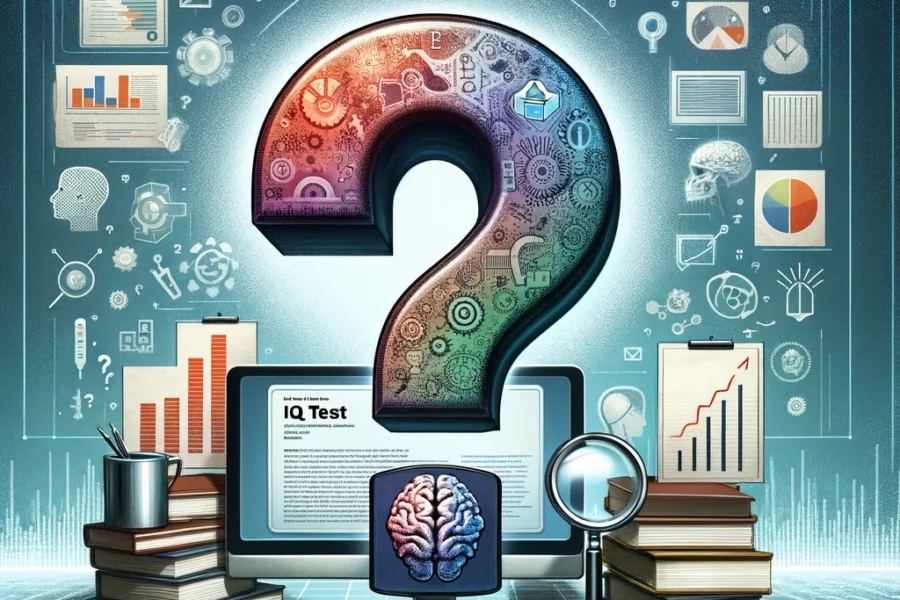How Reliable are Online IQ tests?
In today’s digital age, online IQ tests have exploded in popularity, with billions of test attempts recorded annually across various platforms. These assessments promise a quick, convenient, and often free evaluation of intellectual capabilities, but a critical question remains: just how reliable are these online IQ tests? As artificial intelligence and machine learning increasingly influence testing methodologies, understanding the legitimacy and accuracy of these digital assessments has become more important than ever.
If you want to know your own IQ, we have a free IQ test here.
Understanding IQ (Intelligence Quotient) is essential before delving into online testing reliability. Originally developed by French psychologist Alfred Binet in the early 1900s, IQ testing has evolved significantly in the digital era. Modern IQ tests measure cognitive abilities against the general population, with 100 representing the average score and a standard deviation of 15 points. Recent research has shown that IQ scores have been steadily increasing over generations – a phenomenon known as the Flynn Effect – though some studies suggest this trend may be reversing in certain countries.
The quality spectrum of online IQ tests is vast and varied. While some are developed by certified psychologists using advanced psychometric principles, others are simply entertainment tools with no scientific foundation. Professional tests employ sophisticated algorithms and normalized scoring systems, adapting to modern testing standards. However, the majority of freely available online tests lack this scientific rigor, raising serious questions about their accuracy.
Reliability in IQ testing refers to result consistency across multiple attempts. Professional online IQ tests now incorporate advanced anti-cheating measures and environmental controls, but most free versions cannot account for variables like internet connectivity, device differences, or environmental distractions. Recent studies suggest that scores on uncontrolled online tests can vary by up to 20 points for the same individual, highlighting significant reliability issues.
Validity – how accurately a test measures intelligence – remains a crucial concern. Modern professional IQ tests assess multiple intelligence domains, including fluid reasoning, working memory, processing speed, and visual-spatial processing. Many online alternatives focus solely on pattern recognition or logical reasoning, missing crucial aspects of cognitive ability. The emergence of AI-powered adaptive testing shows promise in improving online test validity, but such technology is rarely implemented in free versions.
The self-selecting nature of online test participants creates additional accuracy challenges. Unlike traditional IQ tests, which establish norms through carefully selected population samples, online tests often attract specific demographics, skewing their baseline measurements. Recent data suggests that online test-takers tend to be younger, more tech-savvy, and from higher educational backgrounds than the general population.
Professional applications of IQ testing continue to evolve. While legitimate tests are used in educational planning, clinical assessment, and professional recruitment, unreliable online versions can lead to misguided self-perception and inappropriate life decisions. The growing trend of sharing IQ test results on social media platforms has added another layer of complexity to this issue.
Accessibility remains a major advantage of online IQ tests. Unlike traditional assessments that can cost hundreds of dollars, online versions provide an entry point for those interested in exploring their cognitive abilities. However, this accessibility comes with the responsibility of understanding result limitations.
Modern psychometric science emphasizes the importance of comprehensive cognitive assessment. Gold-standard tests like the latest Wechsler Adult Intelligence Scale (WAIS-IV) and Stanford-Binet Intelligence Scales incorporate sophisticated measurement techniques that most online tests cannot match. The gap between professional and casual online testing remains substantial.
Some premium online platforms now offer more sophisticated IQ assessments. These tests often incorporate advanced features like adaptive questioning, time-controlled sections, and professional analysis. While still not equivalent to in-person professional testing, they represent a middle ground between casual online tests and formal assessments.
Cultural fairness in online IQ testing has become increasingly important as internet access expands globally. Modern test designers are working to eliminate cultural and linguistic biases, but creating truly universal online IQ tests remains challenging. Recent advances in AI-driven translation and cultural adaptation show promise but are still in early stages.
For those considering online IQ tests, critical evaluation is essential. Look for tests developed by qualified professionals, preferably with published validation studies. Understanding test limitations and viewing results as preliminary rather than definitive is crucial.
In conclusion, while online IQ tests have evolved significantly with technological advances, their reliability varies dramatically. Free versions generally serve better as educational tools or entertainment rather than accurate measures of intelligence. Those seeking genuine cognitive assessment should still consider professional testing under controlled conditions. As technology continues to advance, the gap between online and traditional IQ testing may narrow, but for now, online results should be interpreted with appropriate caution and context.




Leave a Comment